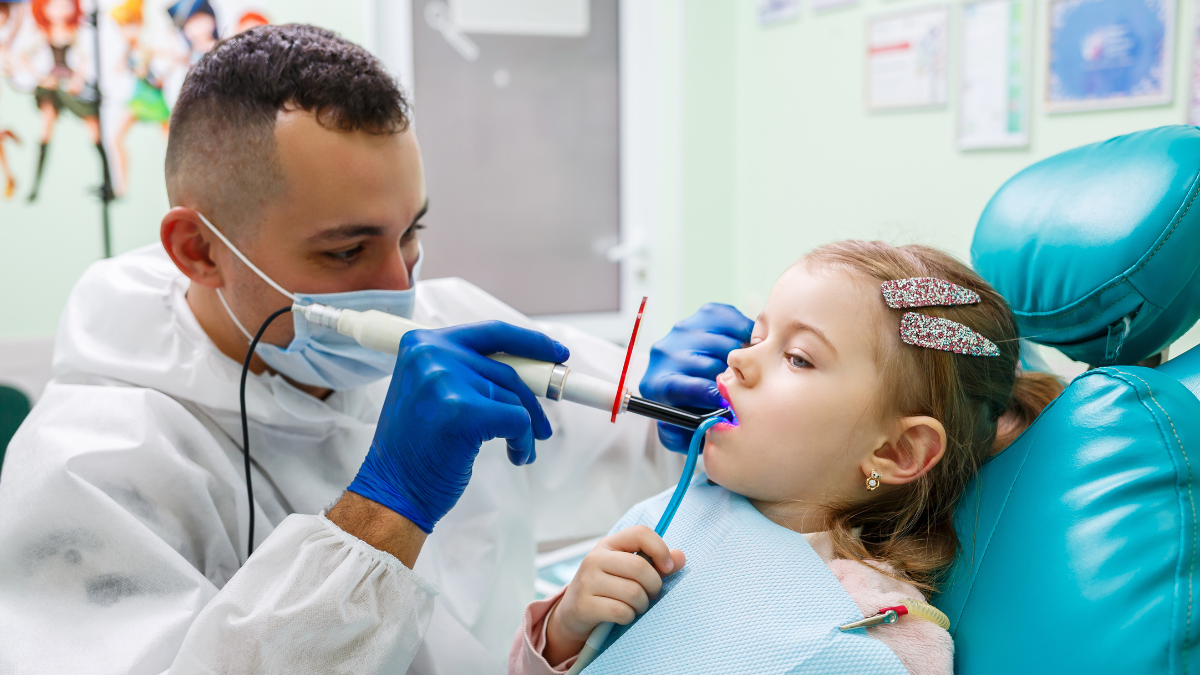As a parent, your child’s health is your top priority. From the food they eat to the air they breathe, you make thoughtful choices to keep them safe. But have you considered how traditional dental care might be impacting their overall well-being?
More families are beginning to explore holistic dentistry as a safer, more thoughtful alternative to conventional dental care. Holistic pediatric dental care focuses on gentle, biocompatible methods that support your child’s total health—not just their teeth.
What Is Toxic Dentistry?
Some common materials and techniques in traditional dentistry raise health concerns, especially for children. These include:
- Mercury-based fillings (amalgam)
- Fluoride overuse
- Unnecessary antibiotics
- Aggressive or rushed treatment plans
While these practices are still standard in many offices, they don’t always support a whole-body approach to wellness. And because children’s bodies are still developing, they may be more sensitive to chemical exposures.
A Safer, Gentler Approach: Holistic Pediatric Dentistry
Holistic dentists take a big-picture view. Instead of just treating symptoms or isolated problems, they consider how each dental decision affects your child’s overall health and development.
Here’s how holistic dental care stands out:

1. Safer Materials
Holistic dentists use fillings, sealants, and crowns made with biocompatible materials that are free from mercury, BPA, and other potentially harmful substances.
2. Minimally Invasive Care
When treatment is needed, gentle techniques and early intervention help preserve more of your child’s natural tooth structure.
3. Smart Use of Fluoride
Rather than applying fluoride automatically, holistic dentists consider your child’s individual needs. They may also offer non-fluoride options when appropriate.
4. Whole-Child Approach
Appointments are paced and personalized. Children with anxiety, special needs, or sensory sensitivities are treated with extra care and patience.
5. Focus on Prevention
Rather than just reacting to cavities, holistic care encourages healthy habits, diet, and hygiene that reduce the need for treatment in the first place.
Parents who are curious about what this type of care involves can learn more by exploring a holistic dentist for kids who specializes in child-centered, biocompatible care.
Why More Parents Are Making the Switch
Some families turn to holistic dentistry after a stressful experience at a more traditional office. Their child may have felt rushed, overwhelmed, or pressured into treatment they didn’t feel ready for.
Holistic dentists work differently. You’re more likely to be met with calm, conversation, and collaboration—not pressure. Many parents find that their children are less fearful and more cooperative when care is delivered with a gentler touch.
For those looking in the area, finding a trusted pediatric dentist in Baltimore Maryland who offers a whole-body, prevention-focused approach can be a helpful next step.
How to Choose the Right Dentist
Finding a provider you trust can make all the difference. Look for someone who:
- Takes time to explain your options
- Uses safe, research-backed materials
- Understands childhood development and anxiety
- Encourages preventive care and healthy routines
When your dentist truly sees and supports your child, every visit becomes an opportunity to build confidence—not fear.
You might also want to ask about the dentist’s philosophy toward early intervention, how they approach nutrition and oral health education, and whether they have experience supporting children with unique needs. A good fit will feel collaborative, not clinical, and will take your input seriously as part of your child’s care team.
The Bottom Line
Holistic pediatric dentistry is about more than avoiding certain chemicals. It’s about creating a safe, supportive environment where your child can thrive.
If you’re ready to explore a more mindful approach to dental care, holistic pediatric dentistry offers a compassionate, non-toxic path forward.
To learn more, consider exploring trusted local resources and practices that specialize in this form of care.





















